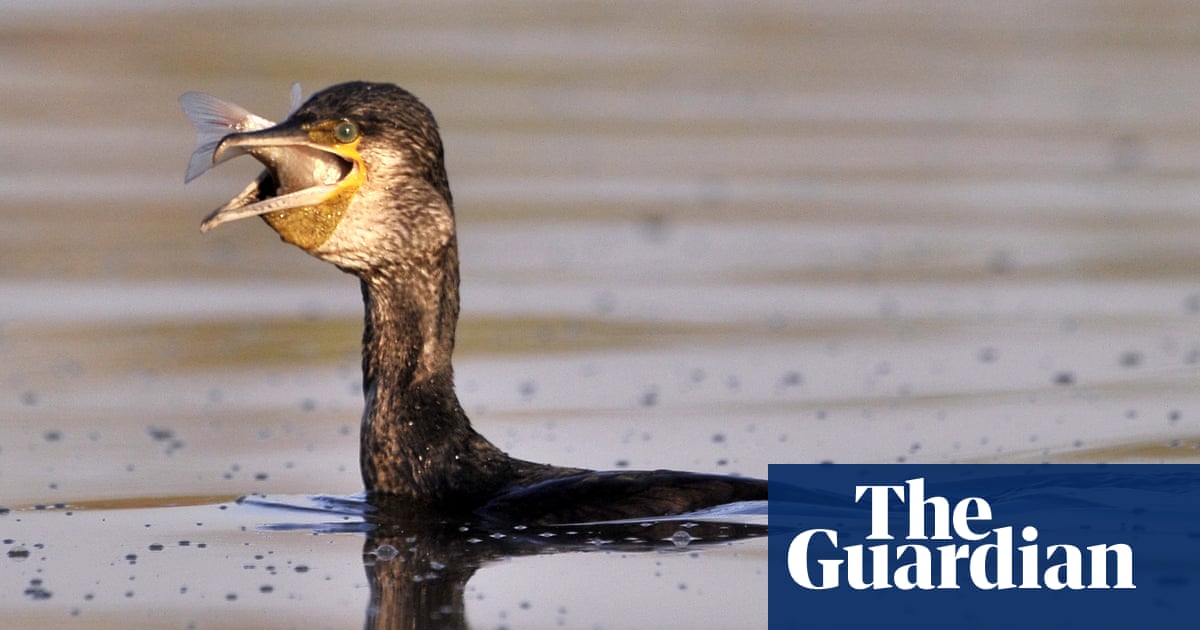West Bay harbourside at the end of the school holidays seethes with visitors enjoying a last lick of summer. Families cluster around the food kiosks, buying ice-cream, chips and churros, or peer over the harbour edge at boats bobbing on the rising tide.
“Look at that great big bird!” A woman points at a cormorant (Phalacrocorax carbo), which has surfaced in the water immediately below. It’s the size of a goose, but dark-feathered, sitting upright in the water, propped up by its fanned-out tail, its long neck stretched skywards. In the middle of its throat there is a prominent, wriggling bulge – it has caught a fish.
Children stare in fascination as the bird gulps and shakes its head, the lump moves down, seems to be vanquished, and then with a convulsive, feather-rippling flip, rises up again. The cormorant closes its salt-green eyes, swallows hard and dips its head to scoop a beak-full of seawater. Another determined gulp and shake, and the fish finally goes down into the bird’s crop, where it will be partially dissolved by gastric acid before being ground in its gizzard.
The cormorant dives underwater and the kids move on. I stay and watch, wondering if I will glimpse the harbour seal that has been resident here over the last few months. In recent years, both common and grey seals have been seen regularly along the Dorset coast. One or two of them have become habituated to humans and will swim alongside bathers and paddleboarders. Fun as this seems, the seals’ interaction with people raises similar issues to that of “Reggie” the juvenile bottle-nosed dolphin, whose appearance near nearby Lyme Regis has stimulated frenzied media interest.
Swimmers have been warned to stay away from both beasts – seals can bite, dolphins can be unpredictable – but the largest danger is to the animals themselves. The more contact they have with humans, the more likely they are to be harmed; either directly, or as a result of behavioural changes.
Counterintuitive as it sounds for a committed wildlife watcher, I’m often much happier not seeing rarer creatures. I was glad not to spot the harbour seal and hope not to see “Reggie”.
Under the Changing Skies: The Best of the Guardian’s Country Diary, 2018-2024 is published by Guardian Faber; order at guardianbookshop.com and get a 15% discount

